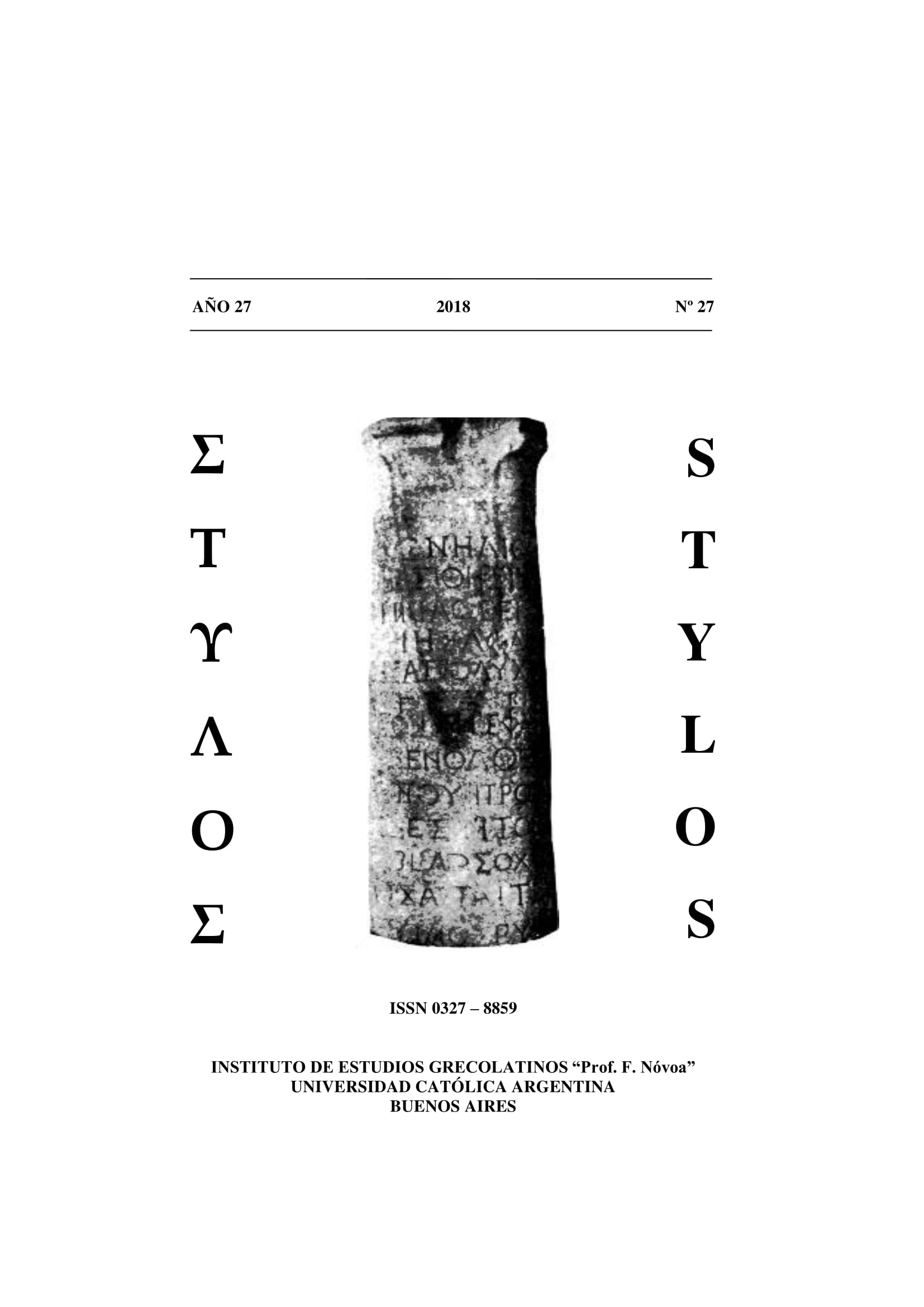SOLEO EN SÉNECA: FRECUENCIA Y FUNCIONALIDAD EN LAS TRAGEDIAS
Keywords:
auxiliary verbs, soleo, Seneca, tragedies, periphrasis.Abstract
The present work is based on the study of the verb soleo in Seneca’s tragedies. In Romance languages such as Spanish, the verb soler is seen as an auxiliary of a temporo-aspectual periphrasis and there are countless studies on its characteristics and functioning. Therefore, we propose to put through its Latin antecedent soleo to different tests to provide morphological, semantic and syntactic information in order to prove its behavior as an auxiliary verb in this language. Which properties let soleo be labelled as auxiliary, which are its syntactic properties and which semantic values it expresses are the questions we set our start from to deepen and extend the study of auxiliaries to a particular language such as Latin.Downloads
References
ERNOUT, A. – THOMAS, F. (1953) Syntaxe Latine. Klincksieck: París
FERNÁNDEZ CASTRO, FÉLIX (1999) Las perífrasis verbales en el español actual. Madrid: Gredos.
GAFFIOT, F. (2000) Dictionnaire Latin Français, Hachette: Paris.
GÓMEZ TORREGO (1988) Perífrasis verbales. Sintaxis, semántica y estilística. Arco/Libros, Madrid.
LACA, BRENDA (2005) “Périphrases aspectuelles et temps gramatical dans les langues romanes”, Bat-Zeev Shyldkrot, H & Le Querler, N (eds.) en Les périphrases verbales (Lingvisticae Investigationes Supplementa 25), John Benjamins: Amsterdam, pp. 47-66.
JOFFRE, M.D. (1994) “L’auxiliation en latin” in Mellet, S.-M.D.Joffre-G. Serbat. Grammaire Fondamentale du Latin, sous la direction de Guy Serbat, Louvain – Paris, Éditions Peeters.
Oxford Latin Dictionary (1996) Oxford University Press.
Real Academia Española (2011) Nueva gramática básica de la lengua española. Espasa: Buenos Aires.
SENECA (1961) Tragedies, Loeb: Londres/Harvard U. Press
TOPOR, MIHAELA (2005) “Criterios identificadores de las perífrasis verbales del español” en Sintagma 17, pp. 51-69, Universitat de Lleida, Cataluña.
Downloads
Published
How to Cite
Issue
Section
License






